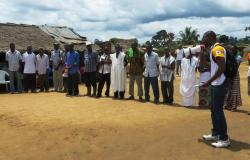
Examinations of the effectiveness of diplomacy in conflict resolution generally focus on official political institutions and the roles that they play. This article takes a different tack and focuses on the social institutions and groups that exist in and are affected by a conflict environment. This article argues that conflict resilience— which we define here as the ability to resist and recover from conflict — and its ability to contribute to social cohesion are key dimensions of the ability to manage conflict in the types of conflicts that are prevalent in the world today. We examine several different definitions and examples of conflict resilience, and identify actions that outside actors can take to support resilient institutions and groups, particularly in the areas of supporting effective domestic institutions, promoting inclusion and encouraging good leadership.